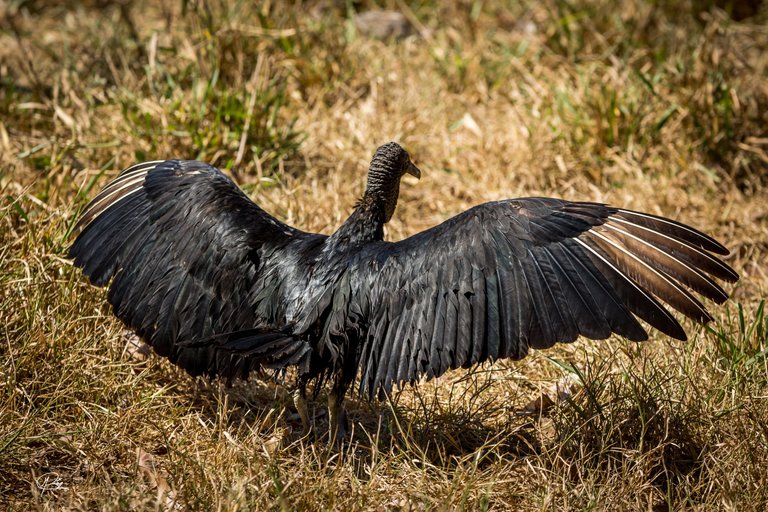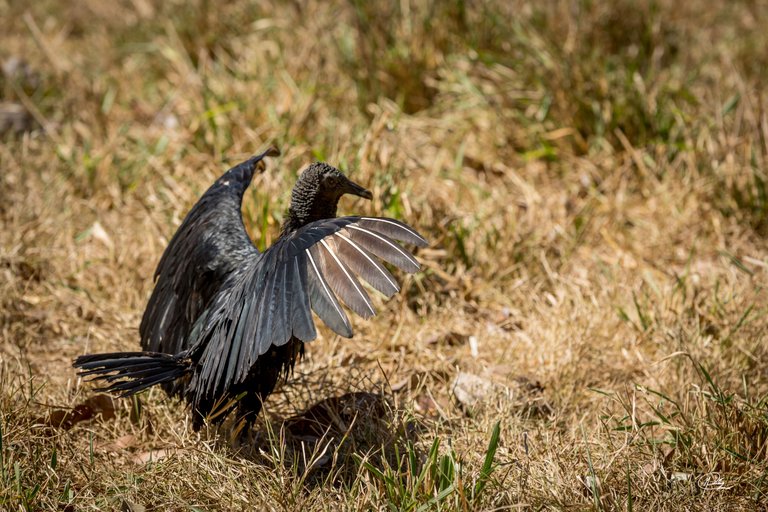My entry for the contest Round 18. THE VULTURE BATH
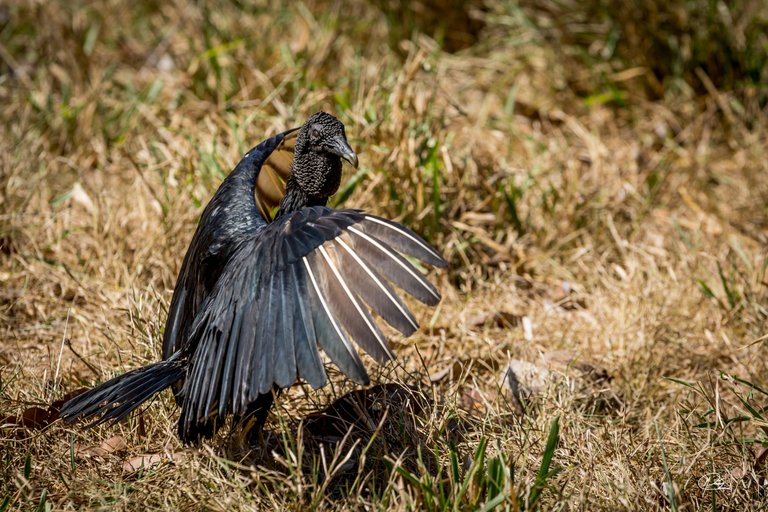
Vultures play a very important role in the environment, they are part of nature's cleaning teams. Animals that die either naturally or by accident are often eaten to the bone, thus preventing decomposition and the spread of disease to other animal populations. They are very efficient at their work, and can clean a large animal in a matter of a couple of days.
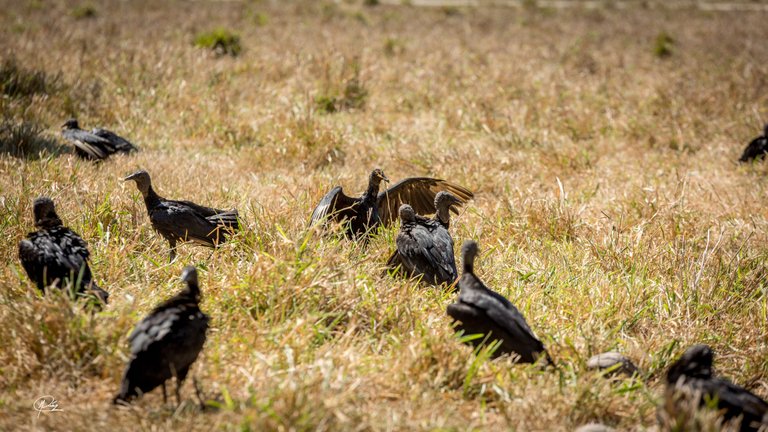
We have observed this behavior a lot, either live or thanks to television documentaries, but vultures perform many other behaviors that are little known or that can only be seen in very specific and remote places.
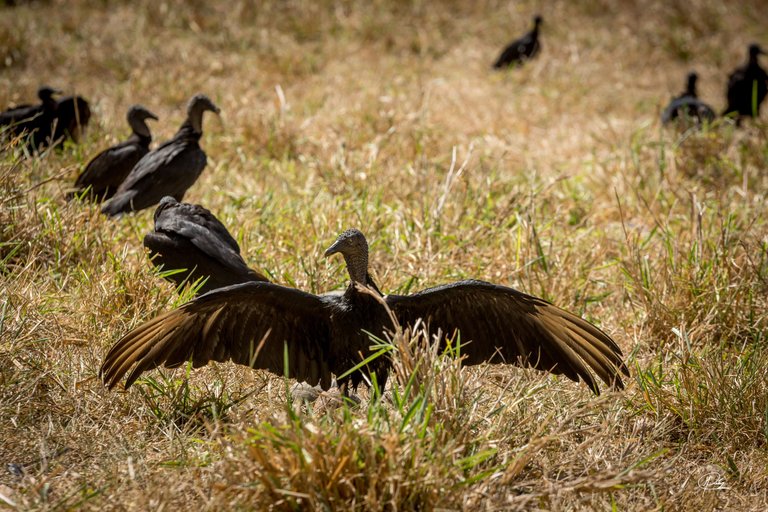
This is the case of the behavior that I tell you below. During my last vacation outing, we took the opportunity to visit the Curú Reserve, on the Nicoya peninsula in Costa Rica. It is one of the few forested areas of its kind that still remain in the Central American Pacific. During the morning we take the opportunity to walk the trails and take photos of monkeys and deer and eat on the beach. We decided to leave the park early, so we got in the car and drove the three kilometers to the exit. A few meters before arriving, we observed a large group of black vultures (Coragyps atratus), so we deviated from the path to observe them, believing that they were feeding on some dead animal.
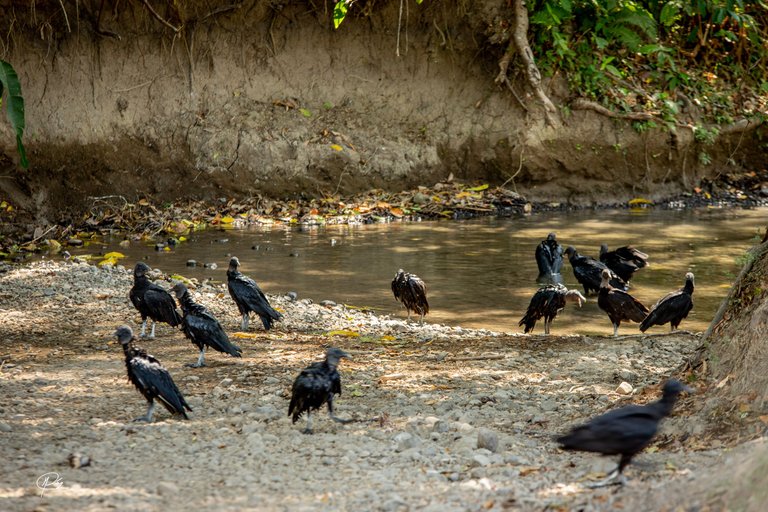
To our surprise there was no dead animal, just a large group of vultures with their wings open in the sun. We got even closer until we reached a small river, our surprise was even greater when we observed how they bathed in large numbers in the waters, and then flew to a clear area to dry their feathers. This was behavior he had once heard of, but very rare to observe. After feeding, the vultures gather in large groups to bathe and remove the remains of dirt, they prefer clean waters in quiet places, and the river in the reserve was the right place. Then, as in a ritual event, they gather under the sun with their wings spread to dry off and return to flight.
